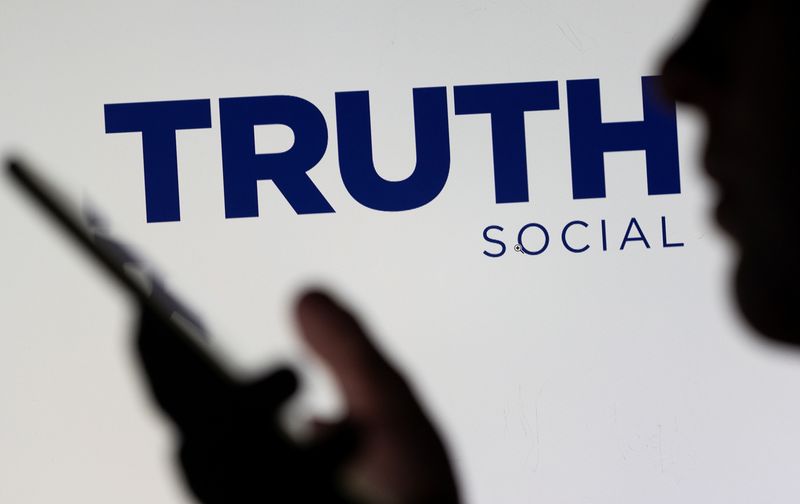By David Randall
NEW YORK (Reuters) - Short-sellers in Trump Media & Technology Group are feeling the heat from the recent rally in the company's stock and the higher cost of borrowing its shares, analytics firm S3 Partners said.
Shares of the company, which operates former President Donald Trump's social media firm Truth Social, jumped nearly 7% on Tuesday. Shares have risen for five straight days, though they are down nearly 30% since it began trading on March 26 at $70.90.
That advance has hit the returns of short-sellers, leaving them with market-to-market profits of $91.1 million for the month of April, or a gain of 50%, said Ihor Dusaniwsky, president of S3 Partners.
Short-sellers, who profit when the share price falls, are still down 68% since the trading debut in late March, with $94.8 million of year-to-date mark-to-market losses, he said.
Short-sellers are "exiting their positions due to the huge cost of stock borrow financing and the stock being up 75% in just over two weeks," Dusaniwsky said.
Short-sellers exiting a position must buy back the underlying stock, exerting upward pressure on its shares.
But the recent price action does not necessarily mean bearish investors are running away, according to Dusaniwsky.
While some are unwinding their trades, there are "a slew of replacements ready, willing and able to enter the breach and short the stock at those higher levels."
The higher cost of borrowing the company's shares is adding to their burdens, Dusaniwsky said.
Initiating a new short position in Trump Media & Technology Group carries a fee between 600% and 650%, while existing positions carry fees of 330%, according to S3 data. Fewer than 100,000 shares are available to borrow.

"At these stock borrow levels short sellers need DJT's stock price to drop by three-eighths to just break even and cover daily stock borrow financing costs," Dusaniwsky said.
Trump Media & Technology Group sent a letter to Nasdaq CEO Adena Friedman April 19 alerting the exchange to "potential market manipulation" in the stock and suggested that "naked" short-selling was to blame. "Naked" short selling, which is generally illegal in the United States, involves selling shares without first borrowing them or determining they can be borrowed, creating the risk the seller may not be able to deliver the shares.